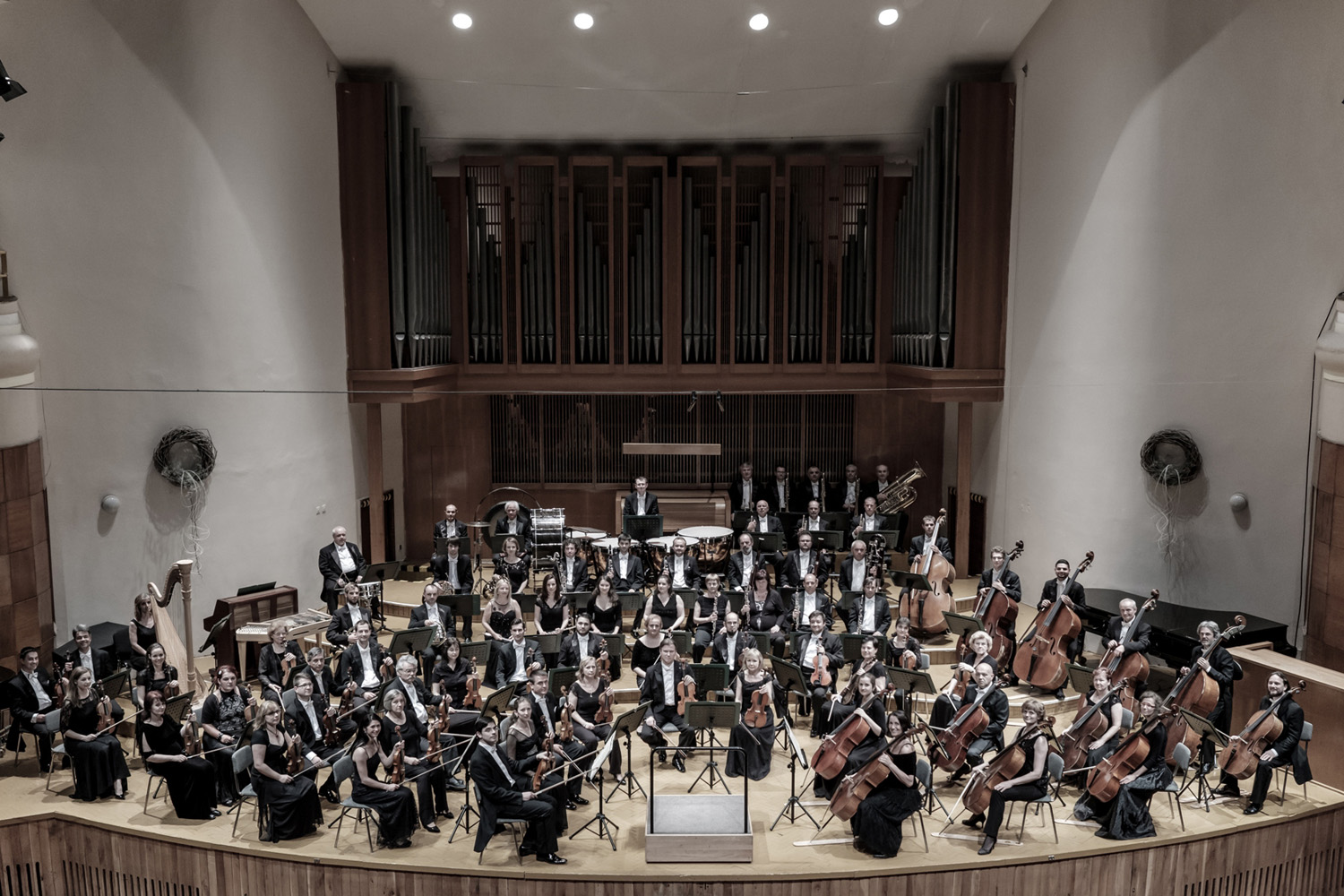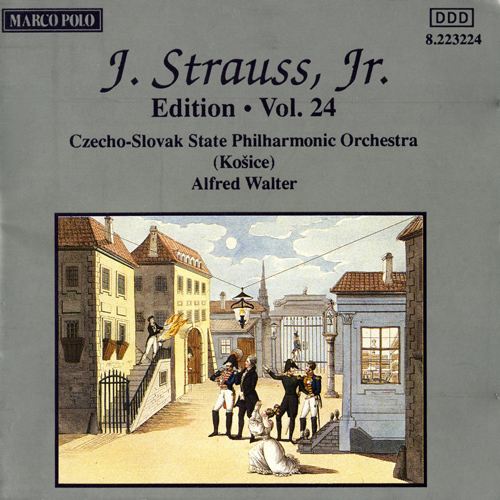Currently not available on CD.
STRAUSS II, J.: Edition - Vol. 24
Tracklist
Walter, Alfred (Conductor)
Walter, Alfred (Conductor)
Walter, Alfred (Conductor)
Walter, Alfred (Conductor)
Walter, Alfred (Conductor)
Walter, Alfred (Conductor)
Walter, Alfred (Conductor)
Walter, Alfred (Conductor)
Walter, Alfred (Conductor)
Walter, Alfred (Conductor)
Walter, Alfred (Conductor)
Walter, Alfred (Conductor)
Walter, Alfred (Conductor)
Walter, Alfred (Conductor)
Walter, Alfred (Conductor)
Walter, Alfred (Conductor)
Walter, Alfred (Conductor)
Walter, Alfred (Conductor)
Walter, Alfred (Conductor)
Walter, Alfred (Conductor)
Walter, Alfred (Conductor)
Walter, Alfred (Conductor)
Walter, Alfred (Conductor)
Walter, Alfred (Conductor)
The Slovak State Philharmonic was established in 1968 as the second professional symphony orchestra in Slovakia. It is based in Košice, the capital of Eastern Slovakia, a city with a population of over a quarter of a million. Košice is a seat of the constitutional court, and has four universities, numerous research institutes, theatres, galleries and museums.
The first concert of the newly founded orchestra was given in April 1969 under the then chief conductor Bystrík Režucha. In a short time the orchestra won wide recognition among both professional and general audiences and became one of the leading representatives of Slovak music in Slovakia and abroad.
The nearly 90-strong ensemble includes professional musicians who are graduates of conservatories and famous music academies.
Great success has been achieved with concerts in many European countries and also in leading cities in Asia. The orchestra has performed at international music festivals held in important cultural centres of the world, including Vienna, Salzburg, Berlin, Budapest, Prague, Antwerp, Lisbon, Barcelona, Athens, Rheims, Hong Kong, Luxemburg, and New York. In 1994 the orchestra undertook a month-long tour of the United States, marking the first appearance of the orchestra in America.
In addition to performances for radio and television, there have been more than 130 commercial recordings, many of them for Naxos and Marco Polo. These include rare repertoire, as well as participation in the Marco Polo recordings of the complete works of the younger Johann Strauss and of his brother Josef Strauss.
Since 1991 the orchestra has been the only one in the Slovak republic to hold two international festivals: the Košice Music Spring Festival and the International Organ Festival of Ivan Sokol. The orchestra has also organised the Festival of Contemporary Art since 2003.


Alfred Walter was born in Southern Bohemia in 1929 of Austrian parents. He studied at the University of Graz and in 1948 was appointed assistant conductor to the Opera of Ravensburg. At the age of twenty-two he became conductor of the Graz Opera, where he continued until 1965, while serving at Bayreuth as assistant to Hans Knappertsbusch and Karl Böhm. From 1966 until 1969 he was principal conductor of the Durban Symphony Orchestra in South Africa, followed by a period of fifteen years as General Director of Music in Münster. In Vienna he worked as guest conductor at the State Opera and in 1986 was given the title of professor by the Austrian government.
In 1980 he was awarded the Golden Medal of the International Gustav Mahler Society.
For Marco Polo, Alfred Walter recorded more than twenty volumes of the label’s Johann Strauss II Edition, works by von Schillings, von Einem, de Bériot, Reinecke and all the symphonic works of Furtwängler and Spohr.
Alfred Walter passed away in 2005.

The eldest son of Johann Strauss, and not intended by his father for a career in music, Johann Strauss the younger nevertheless established an unrivalled reputation throughout the second half of the 19th century as a composer and purveyor of light Viennese music. He involved his two younger brothers in the management and direction of dance orchestras that performed both in Vienna and abroad.
Stage Works
The younger Johann Strauss wrote some 16 operettas between 1871 and 1897. Of these the best known is Die Fledermaus (‘The Bat’), characteristic in plot and music of Vienna at its most lighthearted. Other operettas are more familiar through dances extracted from them, although Der Zigeunerbaron (‘The Gypsy Baron’) remains second only to Die Fledermaus in terms of popularity.
Dance Music
Dance music by the younger Johann Strauss comprises waltzes, polkas, quadrilles, marches and other works. Among these the most familiar remains An der schönen, blauen Donau (‘The Blue Danube’), originally a choral waltz sequence. Strauss, like his father, was extremely prolific as a composer, writing several hundred dances in various forms.































